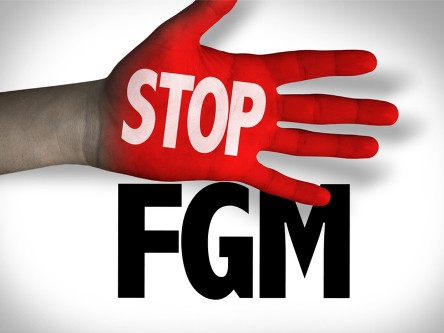
FGM/C: Fear of rejection
I was cut when I was a young girl. Now I found a guy I love and want to marry. I’m afraid to tell him though, fearing that he will reject me. What should I do?
February 6th marks the International Day for Zero Tolerance for Female Genital Mutilation.
FGM/C (Female Genital Mutilation/Cutting) is one of the most retrogressive aspects of our culture. The intention of it was to contain female sexual pleasure. In the past, men would sometimes go away for months and even years, looking after their animals. And FGM/C was to ensure women remained faithful to them. FGM has no benefits whatsoever. On the contrary, it’s harmful and can even be fatal.
Unfortunately, FGM/C affects a woman beyond the intended fidelity. It affects them physiologically as well as physically. FGM/C can rob the woman of her sexual confidence and may replace it with fear and anxiety. However, not all forms of FGM/C suppress a woman’s sexual pleasure. Some women claim that the FGM/C variation that only removes skin surrounding the clitoris actually enhances sensation during sex.
It’s important to know which type of FGM/C you underwent to figure out its effects on you.
Types of FGM/C
According to the WHO (World Health Organization), FGM/C is the removal of all or part on the female external genitals. It also includes other injury to the female genital organs for non-medical reasons. WHO classifies FGM/C into 4 major categories:
- Type 1: Clitoridectomy. This is the total or partial removal of the clitoris. In some cases they remove the fold of skin surrounding the clitoris.
- Type 2: Excision. This is the same as type 1, but it also involves removal of the outer and some cases also the inner lips (labia).
- Type 3: Infibulation. This is the narrowing of the vaginal opening to create a sealing cover. This involves stitching all the inner and outer lips, with or without the removal of the clitoris.
- Type 4. This is the pricking, piercing, incising, scraping and/or cauterizing the genital area including the clitoris, often combined with infibulation.
Seek help to indentify which type you underwent
You need to consult with a qualified gynecologist to determine what type you underwent. Surgery can correct some forms of FGM/C, especially type 3.
I would also recommend you seek counseling to deal with the trauma. This would be a good time to involve your fiancée so he too could benefit from the therapy. As well as understand you better. This could be a test to see how strong your relationship is. Moreover, you want to start a marriage on a strong foundation based on mutual trust, love, and honesty.
FGM/C and sex
Finally, I know you are concerned about sex. You need to overcome the trauma of FGM/C, and arm yourself with knowledge of what will work for you. Even without a clitoris, you could still have orgasms through the G-spot. Modified missionary positions can be great for G-spot stimulation. Try lots of things and figure out what feels best.
With understanding, patience and support from your man, I believe you can overcome it all and have a fun and pleasurable sex life. Good luck and God bless.
How would you tell your partner you have been cut? Leave your tips below or on Facebook. For questions on FGM/C, get help from our discussion board moderators.
